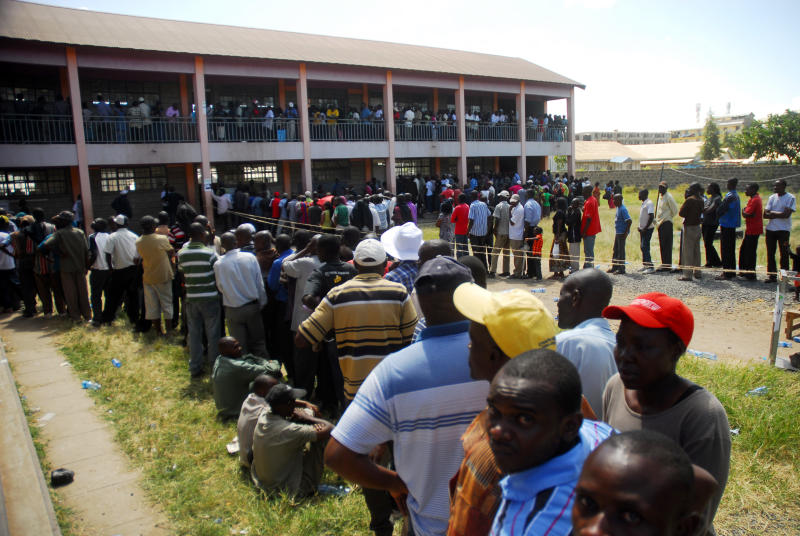Voters queue at Mukuru Educational Centre in Embakasi Nairobi during the 2013 General Election. [Boniface Okendo, Standard]
×
The Standard e-Paper
Stay Informed, Even Offline

Voters queue at Mukuru Educational Centre in Embakasi Nairobi during the 2013 General Election. [Boniface Okendo, Standard]
Some of my very good friends see no reason to vote in the August General Election. Why? They have no preferred candidate. Election outcomes are determined regardless of the actual vote count. Politicians are the same monkeys in a different forest. Corruption will influence who is elected.